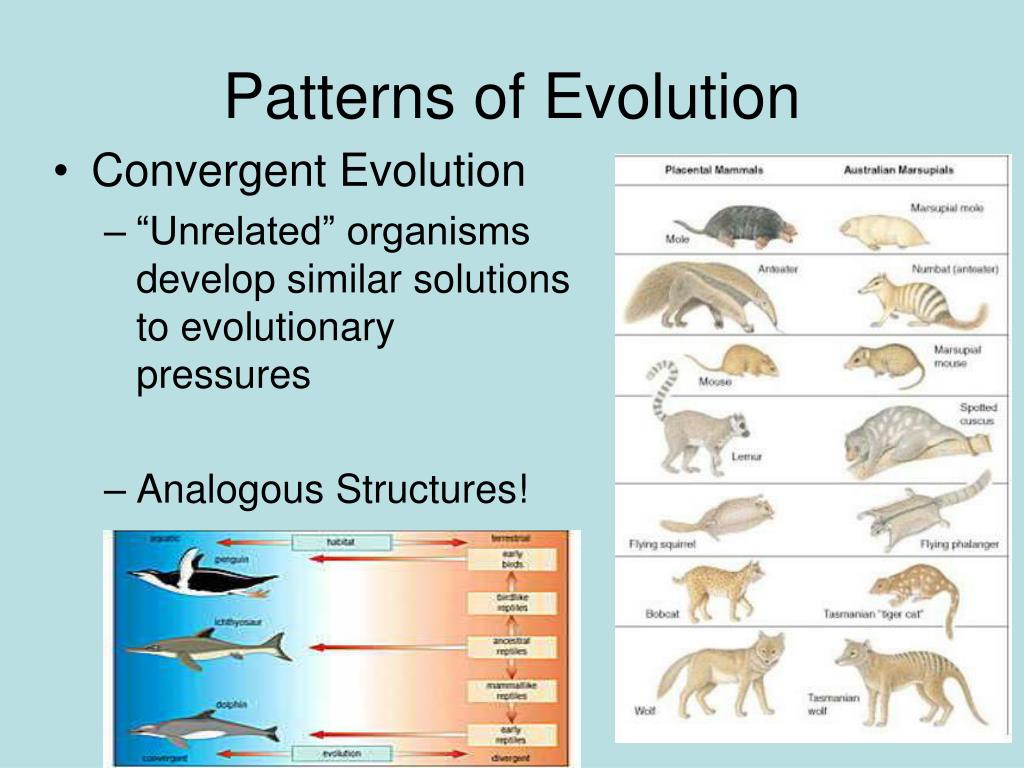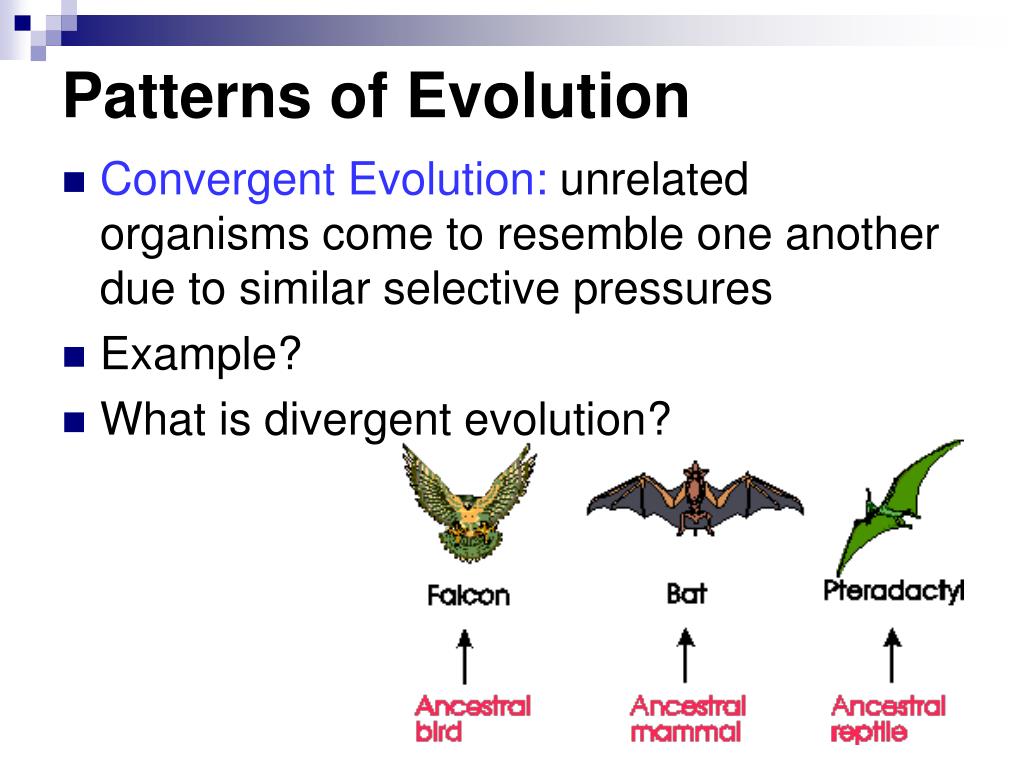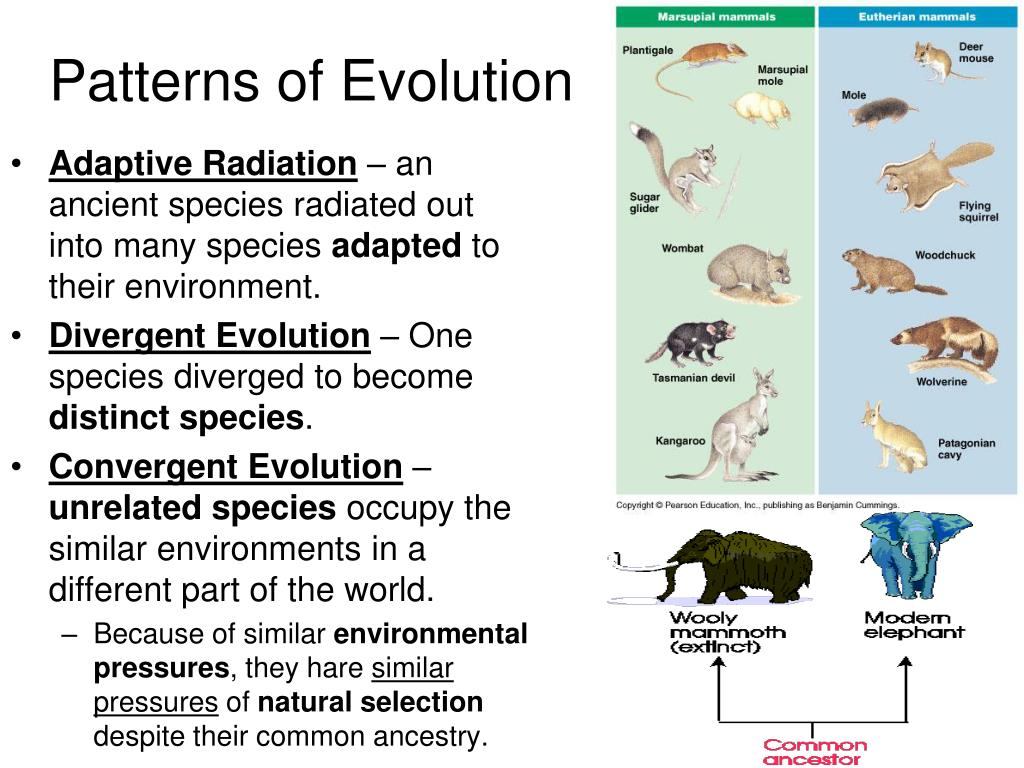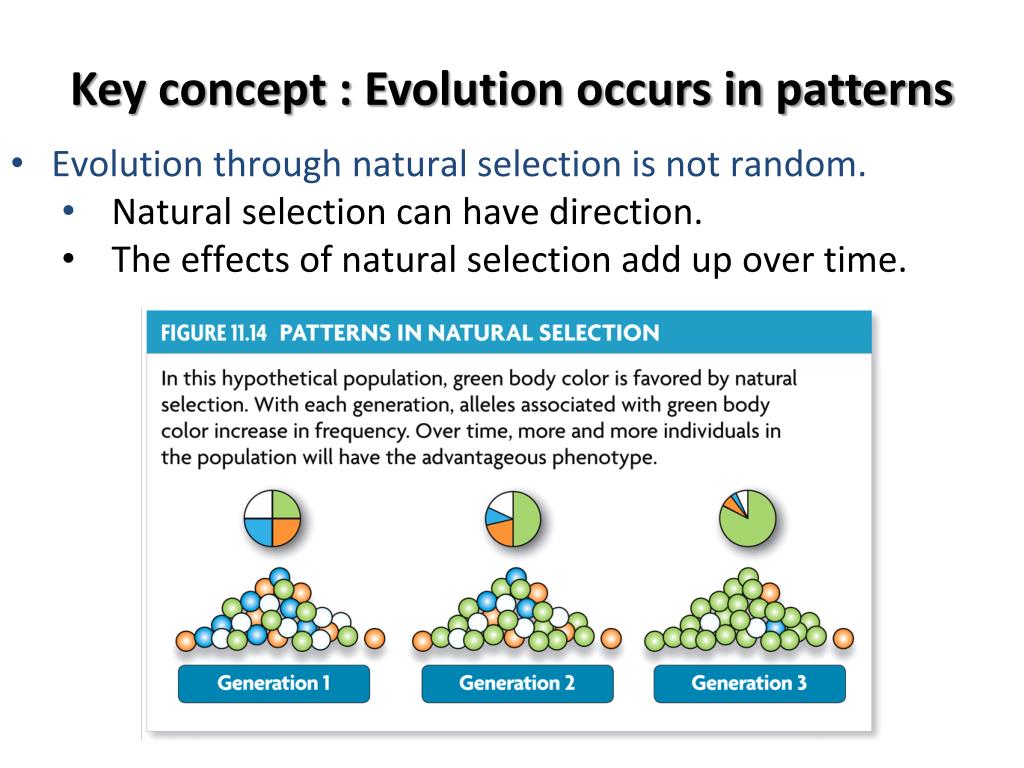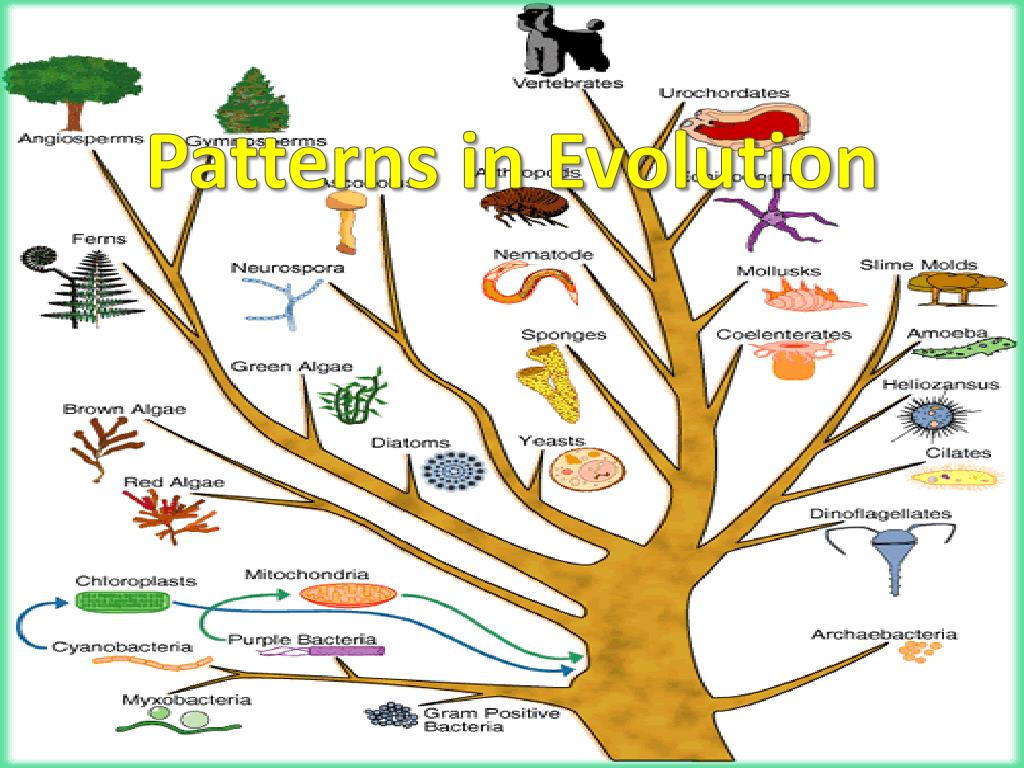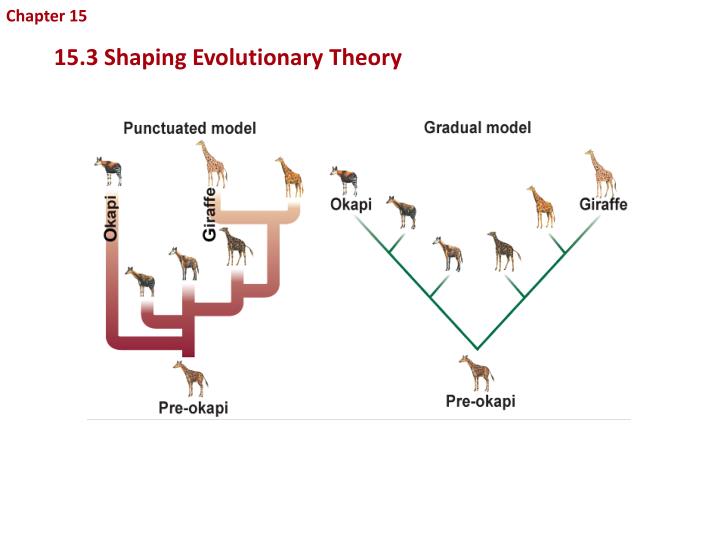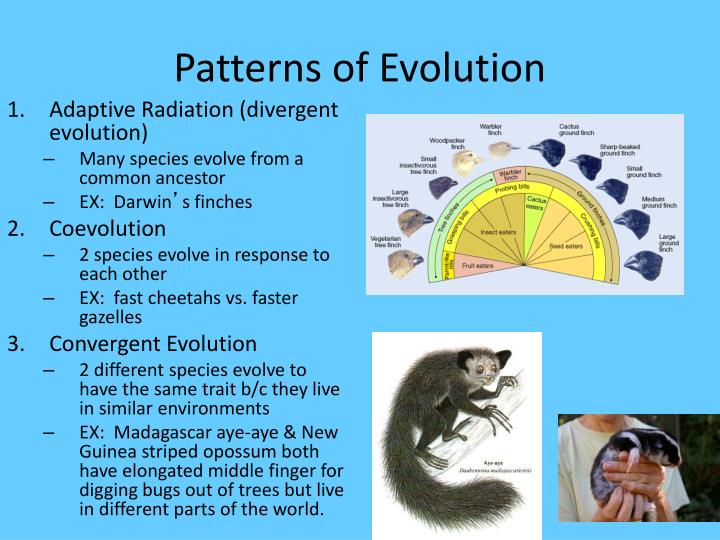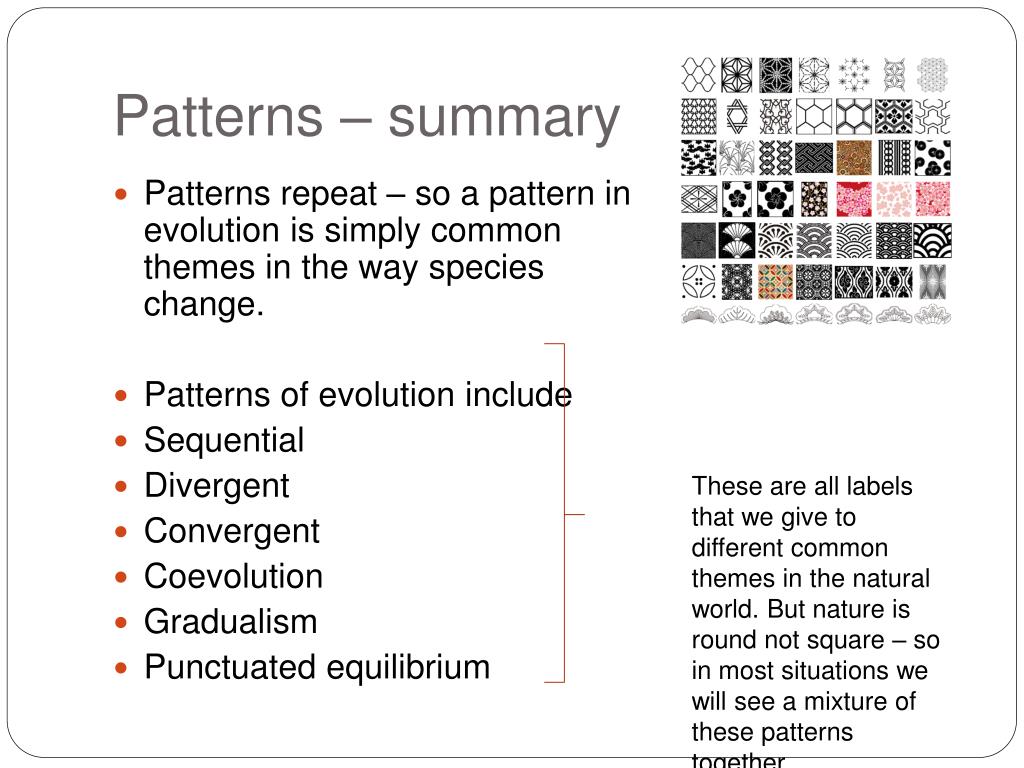Patterns Of Evolution
Patterns Of Evolution - Convergent evolution occurs when dissimilar species gradually become more similar. Broad groups that evolved before the breakup of the supercontinent pangaea (about 200 million years ago) are distributed worldwide. Web patterns of evolution. Web the geographic distribution of organisms on the planet follows patterns that are best explained by evolution in conjunction with the movement of tectonic plates over geological time. Web serra and his team, in collaboration with the university of dundee biologists, developed a mathematical model. Use these ideas to teach about the water cycle in your classroom. Web there are three main patterns of species evolution. We can see such divergent. When two species evolve in diverse directions from a common point, it is called divergent evolution. This process is made possible by genetic variation. Natural selection can only take place if there is variation, or differences, among individuals in a population. Web these results suggest that the geographical differentiation among the populations of japanese witch hazel has contributed to the speciation process and intraspecific geographical divergence in hamamelistes aphids, and has also facilitated the evolution of the gene expression pattern and related phenotypic traits in galls. The mechanism that darwin proposed for evolution is natural selection. Web evolution is defined as the change in the inherited traits of a population of organisms through successive generations. Web evolution over time can follow several different patterns. What is evolution and how does it work? We can see such divergent. Web patterns of evolution. Web learn the definition and examine the types and patterns of evolution. Sometimes, evolution gives rise to groups of organisms that become tremendously different from each other. Shows the three main types of evolution: Web there are three main patterns of species evolution. We call two species that evolve in diverse directions from a common point divergent evolution. What is evolution and how does it work? When two species evolve in diverse directions from a common point, it is called divergent evolution. When living organisms reproduce, they pass on to their progeny a collection. Web the geographic distribution of organisms on the planet follows patterns that are best explained by evolution in conjunction with the movement of tectonic plates over geological time. Importantly, these differences must have some genetic basis; Explore different patterns of natural selection in the study of human evolution.. Divergent evolution occurs when closely related species gradually become very different. Web evolution is defined as the change in the inherited traits of a population of organisms through successive generations. Explore different patterns of natural selection in the study of human evolution. Sometimes, evolution gives rise to groups of organisms that become tremendously different from each other. This variation, often. Natural selection can only take place if there is variation, or differences, among individuals in a population. Web learn the definition and examine the types and patterns of evolution. Web in biology, evolution is the process of change in all forms of life over generations, and evolutionary biology is the study of how evolution occurs. Web the geographic distribution of. Web evolution is defined as the change in the inherited traits of a population of organisms through successive generations. Web processes and patterns of evolution. Web evolution over time can follow several different patterns. Convergent evolution occurs when dissimilar species gradually become more similar. Biological populations evolve through genetic changes that correspond to changes in the organisms ' observable traits. Explore different patterns of natural selection in the study of human evolution. Broad groups that evolved before the breakup of the supercontinent pangaea (about 200 million years ago) are distributed worldwide. The evolution of species has resulted in enormous variation in form and function. Natural selection can only take place if there is variation, or differences, among individuals in a. Factors such as environment and predation pressures can have different effects on the ways in which species exposed to them evolve. Web the central ideas of evolution are that life has a history — it has changed over time — and that different species share common ancestors. Web the geographic distribution of organisms on earth follows patterns that are best. The mechanism that darwin proposed for evolution is natural selection. Web there are three main patterns of species evolution. Factors such as environment and predation pressures can have different effects on the ways in which species exposed to them evolve. Web the geographic distribution of organisms on the planet follows patterns that are best explained by evolution in conjunction with. Explore different patterns of natural selection in the study of human evolution. When two species evolve in diverse directions from a common point, it is called divergent evolution. This process is made possible by genetic variation. Divergent evolution occurs when closely related species gradually become very different. Use these ideas to teach about the water cycle in your classroom. We call two species that evolve in diverse directions from a common point divergent evolution. Importantly, these differences must have some genetic basis; Divergent evolution occurs when closely related species gradually become very different. Shows the three main types of evolution: Web evolution is the process by which species adapt over time in response to their changing environment. What is evolution and how does it work? Sometimes, evolution gives rise to groups of organisms that become tremendously different from each other. Evolution is responsible for both the remarkable similarities we see across all life and the amazing diversity of that life — but exactly how does it work? When living organisms reproduce, they pass on to their progeny a collection. Factors such as environment and predation pressures can have different effects on the ways in which species exposed to them evolve. When two species evolve in diverse directions from a common point, it is called divergent evolution. Web evolution over time can follow several different patterns. Web you can think of patterns as “what happened when.” all of the changes, diversifications, and extinctions that happened over the course of life’s history are the patterns of macroevolution. Shows the three main types of evolution: Biological populations evolve through genetic changes that correspond to changes in the organisms ' observable traits. The evolution of species has resulted in enormous variation in form and function. Web patterns of evolution. Web evolution is the change in the heritable characteristics of biological populations over successive generations. Importantly, these differences must have some genetic basis; Web the geographic distribution of organisms on earth follows patterns that are best explained by evolution, in combination with the movement of tectonic plates over geological time. Web there are three main patterns of species evolution.PPT Mechanisms of Evolution PowerPoint Presentation, free download
PPT Evolution PowerPoint Presentation, free download ID112646
PPT Mechanisms of Population Evolution PowerPoint Presentation, free
PPT Patterns in Evolution PowerPoint Presentation, free download ID
PPT Patterns in Evolution PowerPoint Presentation, free download ID
PPT 15.3 “Patterns” of Evolution PowerPoint Presentation ID2283507
PPT EVOLUTION PowerPoint Presentation ID3076360
PPT Patterns of Evolution PowerPoint Presentation, free download ID
PPT MECHANISMS FOR EVOLUTION PowerPoint Presentation, free download
PPT Patterns of Evolution PowerPoint Presentation, free download ID
This Variation, Often Resulting From Sexual Reproduction, Leads To A Range Of Traits Within A Population.
Divergent Evolution Occurs When Closely Related Species Gradually Become Very Different.
Sometimes, Evolution Gives Rise To Groups Of Organisms That Become Tremendously Different From Each Other.
It Occurs When Evolutionary Processes Such As Natural Selection And Genetic Drift Act On Genetic Variation, Resulting In Certain Characteristics Becoming More Or Less Common Within A Population Over Successive Generations.
Related Post:
